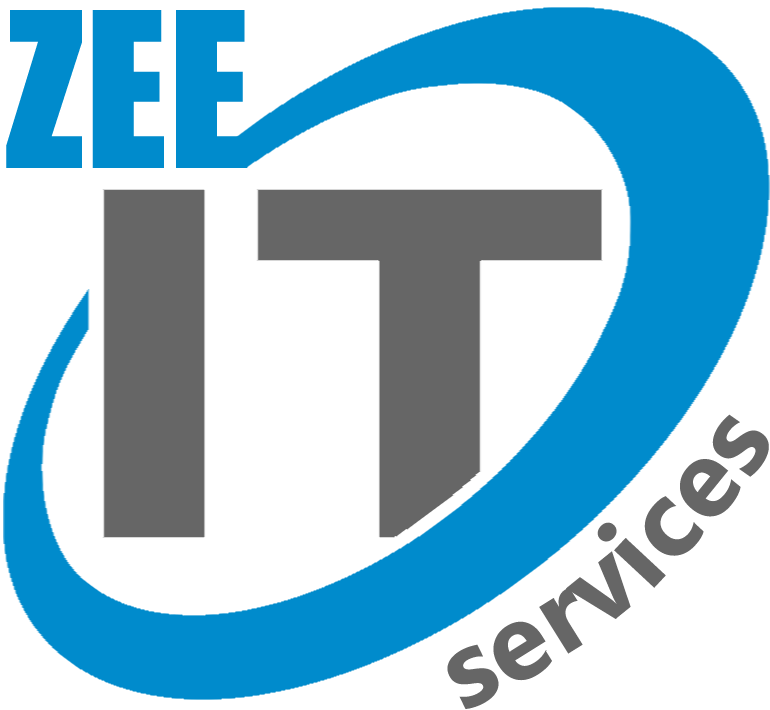Marketing is not an easy task, branding your product to the whole world needs consideration. Resonance, clarity, and accuracy are necessary. On the other side, Vague marketing can have disastrous effects on the direction of your company’s growth and the way people see your brand. Gaining and holding the interest of your target audience in the presence of an increasing number of competitors depends heavily on your ability to communicate your brand’s message, goods, and services. Effective communication establishes trust and understanding, which is the cornerstone of successful customer interactions.
That’s why take this guide for you in which we’ll discuss the repercussions of unclear marketing strategies and how they can potentially derail your business aspirations.
What is Vague Marketing?
When a brand or its services are promoted using vague, confusing, or ambiguous techniques, this is referred to as vague marketing. It includes non-specific or ambiguous messages, calls to action, and target audience identification. Customers are frequently confused by this ambiguity, which makes it difficult for them to relate to the brand and forces them to look for clarification elsewhere. Let’s see how you can make your marketing vague in detail:
Ambiguous Messaging
One of the most common manifestations of vague marketing is ambiguous messaging. This occurs when brands fail to convey their value proposition clearly, leaving consumers puzzled about what sets them apart. Ambiguous messaging dilutes brand identity and makes it challenging for potential customers to discern why they should choose one brand over another.
Unclear Calls to Action
Effective marketing hinges on guiding consumers through a predetermined journey, from awareness to conversion. However, vague calls to action (CTAs) derail this process by leaving consumers unsure of the next steps to take. Whether it’s a lack of specificity or an absence of urgency, unclear CTAs undermine conversion rates and impede business growth.
Lack of Target Audience Clarity
A fundamental aspect of successful marketing is understanding your target audience inside and out. Yet, vague marketing often neglects this crucial element, resulting in messaging that fails to resonate with its intended recipients. Without a clear understanding of who their audience is, brands struggle to tailor their marketing efforts effectively, leading to missed opportunities and diminished ROI.
The Consequences of Vague Marketing
You can face different issues when you do vague marketing. These issues include:
Loss of Customer Trust
The currency that fuels customer loyalty and advocacy in the marketing industry is trust. But when vague marketing strategies are used, trust turns into a hard-to-get good. Customers are naturally wary of companies that don’t communicate with clarity and transparency, which makes them doubt the company’s dependability and honesty. Case studies abound that serve as sobering tales of businesses that have experienced severe failures as a result of imprecise marketing tactics. Every brand, no matter how large or small, can suffer from the consequences of imprecise marketing.
Decreased Conversion Rates
Conversion rates are a useful indicator of marketing efficacy since they show what percentage of leads or website visitors actually complete the targeted action. But vague marketing distorts this measure by not offering specific instructions or incentives to convert. Potential consumers are left hanging in the absence of an engaging value proposition or an obvious call to action, which lowers conversion rates and misses opportunities to generate income.
Additionally, your brand’s sales are eventually impacted by the lower conversion rate. Sales numbers stagnate and revenue growth becomes difficult as conversion rates decline. The financial burden on the company is further exacerbated by the rising unsustainable expenses of generating leads and boosting website traffic.
Brand Dilution and Identity Crisis
Effective marketing is built on a solid brand identity, which acts as a compass to influence consumer perception and loyalty. But vague marketing strategies have the potential to weaken this identity, resulting in identity crises and brand dilution.
Customers find it challenging to distinguish between brands when they get confusing messaging. Consequently, there is a loss of clarity in brand positioning and a blurring of the distinctive value proposition that distinguishes a company. Brands that lack a distinct identity run the danger of losing the interest of consumers and sinking to the bottom of the market.
Competitive Disadvantage
Clarity is a competitive advantage that helps top businesses stand out from the crowd in today’s extremely competitive market. On the other hand, vague marketing places companies at a significant disadvantage and makes it easier for competitors with more clarity to capture market share and consumer attention.
Customers are drawn to businesses that communicate directly to them and precisely and clearly meet their wants and aspirations. When there’s no communication like this, customers go to competitors that have a better value offering and an easier way to get what they want. Because of this, companies who use ambiguous marketing run the danger of falling behind competitors who understand how crucial clarity is to drawing in customers and earning their loyalty.
Navigating Towards Clarity
Businesses must use strategic techniques to create engaging and clear messaging, use market research to identify consumer demands, simplify calls to action, and develop a consistent brand identity in order to achieve marketing clarity. Let’s examine each of these strategies in more detail:
Crafting Clear and Compelling Messaging
In order to communicate with your target audience successfully, you must create a message that is both appealing and clear. Businesses may guarantee that their messaging strikes a chord with customers by implementing the below strategies:
- Reduce complicated concepts to easily understood, appealing informational gets for customers.
- Avoid jargon and technical terminology that may alienate or confuse your audience.
- Make sure you express the advantages of your goods or services in a clear and concise manner, emphasizing how they meet the demands or solve difficulties of your clients.
- Use a story to emotionally connect with your audience while showcasing your brand’s value offer.
- Speak with a real voice that embodies the essence and principles of your business to establish authenticity.
Leveraging Market Research
One of the most effective ways to learn about the requirements, tastes, and behavior of your target audience is through market research. Businesses may efficiently adjust their marketing efforts to resonate with their target by utilizing market research:
- Get direct feedback from your target market to learn about their preferences, problems, and buying habits.
- Utilize demographic information to divide up your audience and customize your messaging for various clientele groups.
- To learn about consumer trends and mood, pay attention to the conversations taking place on social media sites.
- Stay up to date with market trends and advancements to predict shifts in customer behavior and modify your marketing plan appropriately.
Streamlining Calls to Action
- Calls to action (CTAs) that are clear and concise are crucial for assisting customers in completing the conversion process. Businesses may boost conversion rates and encourage audience action by simplifying CTAs:
- Make use of verbs like “buy now,” “subscribe today,” or “learn more” that encourage action right away.
- Incentives to act quickly can be achieved by highlighting time-limited or unique offerings.
- CTAs should be thoughtfully placed in your marketing materials to make sure your audience can see and use them with ease.
- Make sure your audience understands the action you want them to take and how to do it.
Establishing a Consistent Brand Identity
Developing a recognizable and trustworthy brand identity is essential for customers. Businesses can give customers a consistent brand experience and strengthen their brand identification by coordinating their messaging across all platforms:
- Make sure that all marketing materials and channels have the same logos, colors, and font as part of your branding.
- Make sure the tone and voice of your messaging are consistent and represent the essence of your brand.
- Make sure that your messaging is consistently integrated throughout all of your touchpoints and platforms, such as your website, social media accounts, email marketing, and advertising campaigns.
- To strengthen brand identification and foster brand loyalty, place a constant emphasis on your company’s mission statement and fundamental values throughout all of your messaging.
By implementing these strategies, businesses can navigate towards clarity in their marketing efforts, effectively communicating with their target audience, driving engagement, and ultimately achieving their business objectives.
Frequently Asked Questions
What is vague marketing, and why is it detrimental to businesses?
Vague marketing refers to the practice of employing ambiguous, unclear, or undefined strategies in promoting a brand or its offerings. It is detrimental to businesses because it leads to confusion among consumers, hindering their ability to connect with the brand and compelling them to seek clarity elsewhere. This ambiguity dilutes brand identity, erodes consumer trust, and ultimately results in missed opportunities for growth and success.
What are some examples of vague marketing tactics?
Some examples of vague marketing tactics include:
Ambiguous messaging that fails to convey a clear value proposition. Unclear calls to action that leave consumers unsure of the next steps to take. Lack of target audience clarity, where brands fail to understand and address the needs of their intended audience effectively.
How does vague marketing impact customer trust?
Vague marketing undermines customer trust by creating uncertainty and doubt in the minds of consumers. When brands fail to communicate clearly and transparently, consumers are left questioning the integrity and reliability of the brand. This erosion of trust can lead to decreased brand loyalty, negative word-of-mouth, and ultimately, a loss of customers.
What are the consequences of vague marketing on conversion rates?
Vague marketing often results in decreased conversion rates as it fails to provide clear guidance or incentives for consumers to take action. Without a compelling value proposition or a clear call to action, potential customers are less likely to engage with the brand and make a purchase. This, in turn, leads to stagnating sales figures and missed opportunities for revenue generation.
How can businesses navigate towards clarity in their marketing efforts?
Crafting clear and compelling messaging that simplifies complex concepts and highlights benefits. Leveraging market research to understand audience needs and preferences. Streamlining calls to action to direct customers with precision. Establishing a consistent brand identity by aligning messaging across channels and reinforcing brand values.


